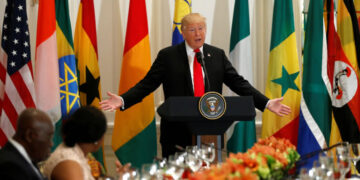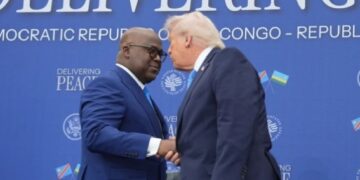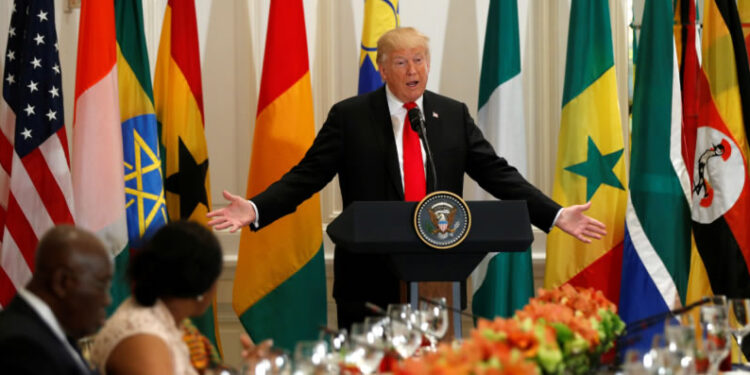The Trump administration will host African leaders for a major trade and investment summit in New York later this year, marking President Donald Trump’s first significant engagement with the continent after largely ignoring it during his first term.
The announcement came from Acting Assistant Secretary of State for African Affairs Troy Fitrell during a business summit in West Africa, signaling a strategic pivot toward economic diplomacy as China consolidates its dominance across Africa.
Speaking at the inaugural gathering of American Chambers of Commerce in West Africa, where several million-dollar energy deals were signed, Fitrell stressed that the upcoming summit would focus squarely on commerce rather than political discussions.
“This won’t be about geopolitics or security issues,” he told reporters. “We’re building partnerships between equals through trade and investment.” While exact dates remain to be finalized, diplomatic sources indicate the event will likely take place between June and August in New York, following the precedent set by President Barack Obama’s 2016 US-Africa Business Forum.
The planned summit represents the Trump administration’s belated attempt to counter China’s growing economic influence across Africa, where Beijing surpassed Washington as the continent’s largest trading partner more than a decade ago.
Unlike his immediate predecessors – Obama hosted the first US-Africa Leaders Summit in 2014, while Joe Biden convened African leaders in 2022 – Trump has until now shown little interest in high-level engagement with African nations. The shift comes amid stagnating US-Africa trade volumes that account for less than 1% of America’s global commerce, while China’s trade with the continent reached $282 billion last year.
Fitrell outlined a comprehensive strategy to revitalize American commercial engagement during his address to business leaders in Abidjan. The plan centers on making commercial diplomacy the cornerstone of US-Africa relations, with ambassadors being evaluated based on their success in facilitating business deals.
It also calls for working with African governments to implement market reforms identified by the private sector, particularly regarding tariff and non-tariff barriers. The administration intends to focus on financing sustainable infrastructure projects that can unlock private capital, while expanding trade missions led by the State Department.
The strategy aims to connect hundreds of thousands of American exporters to African markets and overhaul what Fitrell described as sluggish US trade promotion programs. “For too long, our resources have been too slow, too fragmented and too risk-averse to compete effectively with global competitors like China,” Fitrell told the audience of business leaders and government officials.
“I’m here to tell you this changes now.” The remarks appeared directed at China’s massive Belt and Road Initiative, which has financed $155 billion worth of infrastructure projects across Africa since 2000.
The trade summit announcement followed concrete business progress in Côte d’Ivoire, where officials launched a new US-Ivory Coast Commercial Dialogue and signed several energy and mining agreements. Ivorian Commerce Minister Souleymane Diarrassouba welcomed what he called a “pragmatic shift” from traditional aid-based approaches to genuine trade partnerships.
Energy Minister Mamadou Sangafowa-Coulibaly highlighted growing opportunities in solar energy and natural gas projects that could benefit from increased American investment.
Africa analysts caution that the summit’s success will depend on delivering tangible results rather than symbolic gestures. “After years of American disengagement, African leaders will come to New York expecting more than just photo opportunities and speeches,” said Mvemba Phezo Dizolele, director of the Africa Program at the Wilson Center. “They’ll be looking for meaningful market access and manufacturing partnerships that can create jobs and boost industrialization across the continent.”
With China having established deep economic and political ties across Africa over the past two decades, the Trump administration faces an uphill battle to reposition the United States as the continent’s preferred partner. The upcoming summit may determine whether Trump’s “America First” approach can gain traction in what has increasingly become Beijing’s strategic backyard




































